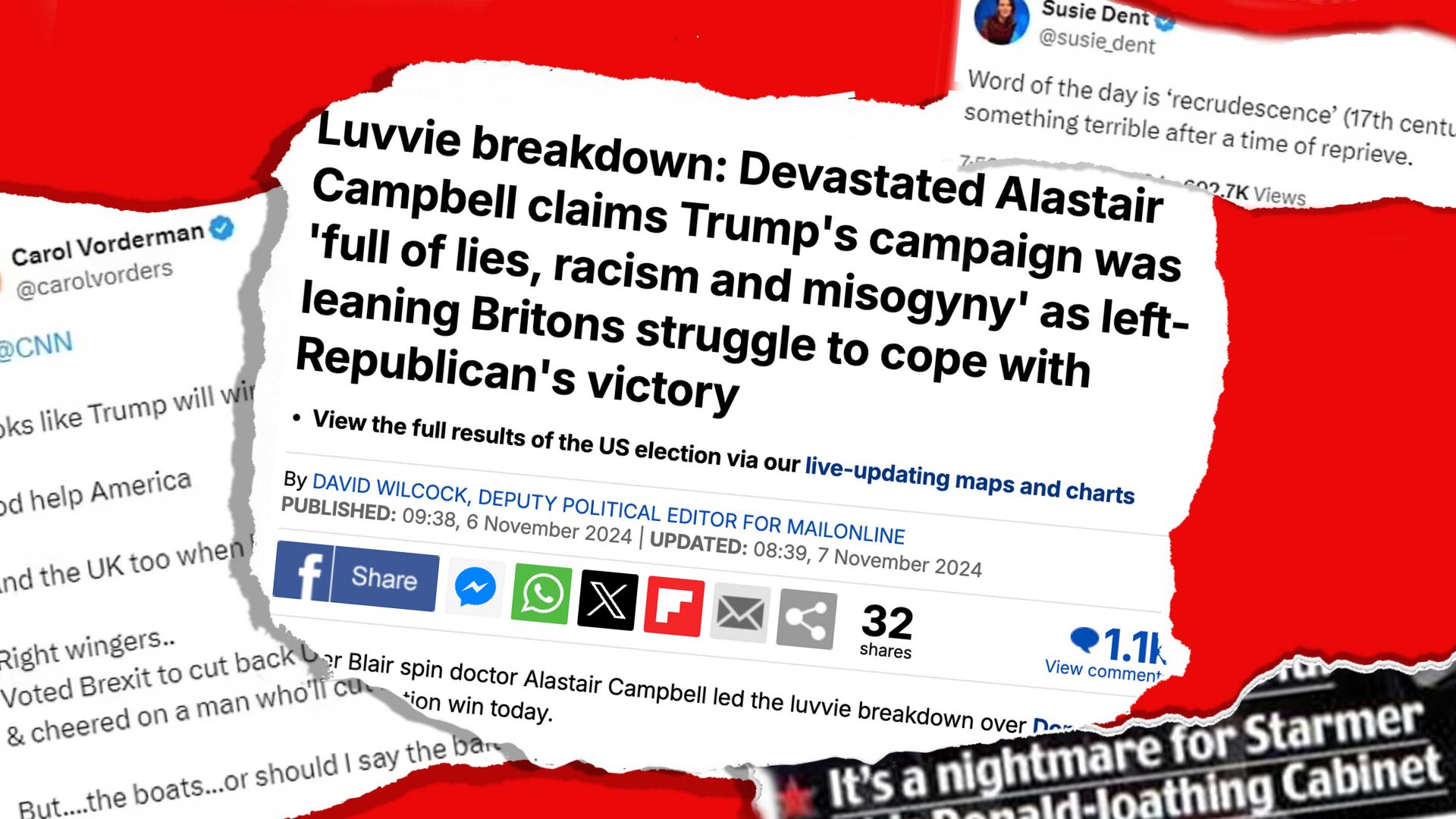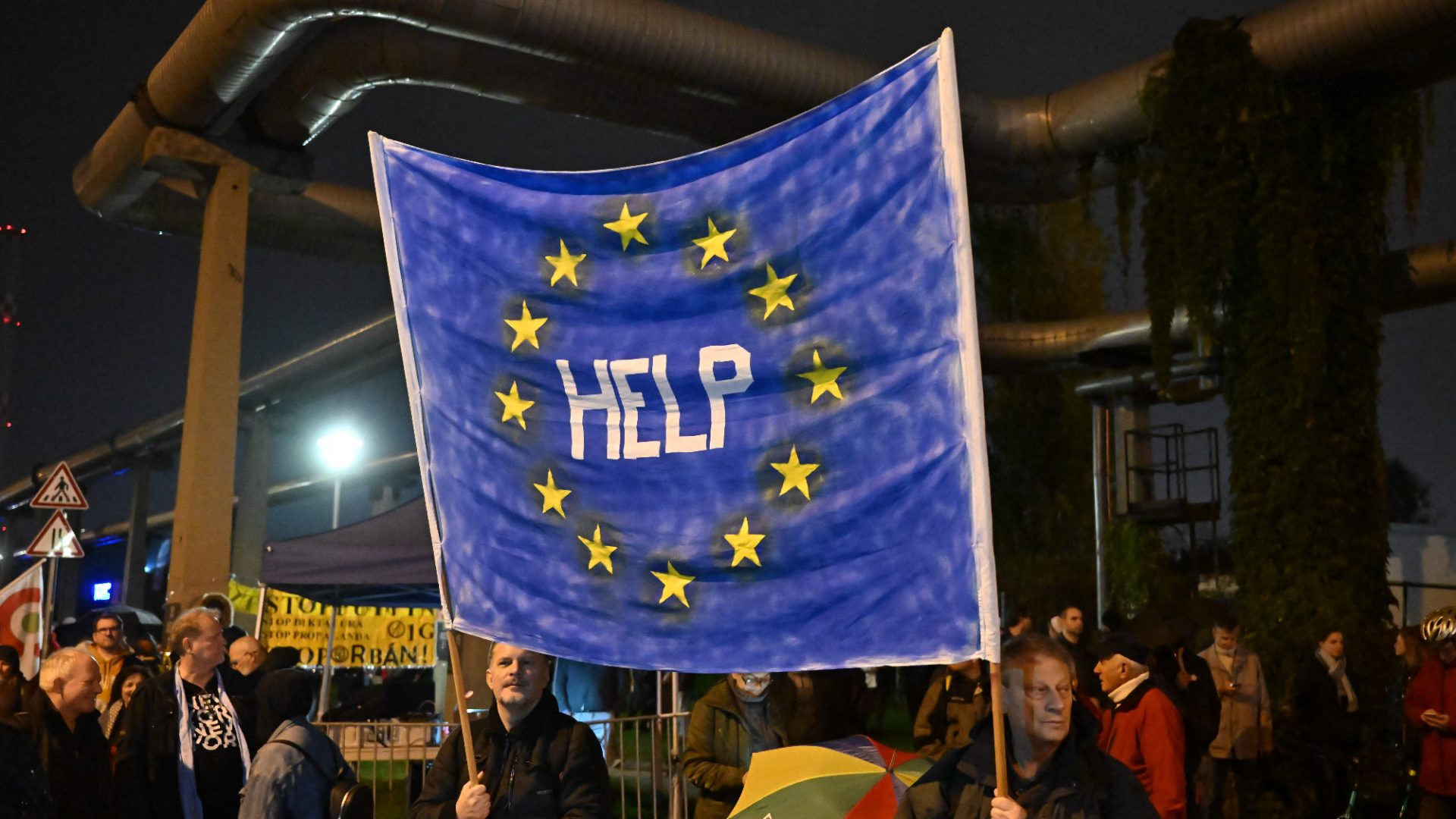It is hardly a new or original insight to point out that the British press can be a bit weird at times. But surely, given the scale, the consequence, and the sheer newsworthiness of the US elections, the weirdness could have been dialled down a bit, just for a few days?
First, there were the facts of the story, a mountain of data into which journalists could dig for days. Then the huge personalities: Donald Trump’s hugest of all, but with so many other players, winners and losers alike, the well-known and less well-known who shaped the outcome, and who merited examination.
Above all, so many enormous issues that were suddenly in flux and which made this election – as I said once it became clear Trump had won – perhaps the most consequential of our lifetime.
Tariffs, trade, and the global economy; China/Taiwan; Russia/Ukraine; the Middle East; American relations with every other country and international organisation in the world; the future of Nato; the future of the planet, given the likelihood of a new attitude and direction on climate change; AI and the next waves of the tech revolution; issues of sex, race, and masculinity, toxic or pure; abortion; the impact his win will have on how politics and campaigns are conducted around the world; the rise of US oligarchs and their capture of the state; what will happen to legal cases against Trump, and the sentences of those jailed for the January 6 insurrection he inspired; the strength of the democratic guardrails; the health, possibly even the future, of democracy.
Any one of these and more merit books and films, let alone articles and tweets. Yet for elements of our press, “owning the libs”, as it is known in MAGAland, seems every bit as important as any attempt to explain the possibilities in all of the above.
Hence the disinterment of any and every anti-Trump comment delivered by a Labour politician, somehow to suggest that if you once expressed the view that he was anything other than the returning Messiah you were putting the “special relationship” at risk, and so further destroying Britain.
This was especially weird given that none of them had ever gone as far as calling Trump “America’s Hitler”. That one belonged to the mind and mouth of JD Vance, something Trump did not regard as an obstacle to the Ohio senator becoming his running mate and now vice-president who, should Trump meet his maker at any point in the next four years, would become president, rendering the Elon Musk-Peter Thiel sovereign individual takeover complete.
The weirdness got personal when, the morning after I returned from New York to London, I climbed into a cab, in which a previous passenger had left copies of the Mail and the Telegraph. My podcast partner, Rory Stewart, was getting a good lashing for having dared to make a bold prediction that Kamala Harris would win, and saying he had placed a large bet on it.
I actually found Rory’s misplaced optimism, his very honest admission that “wishful thinking” led him to get things wrong, alongside his deeper analysis of why, rather refreshing.
The Mail threw me into the mix under the headline “Luvvie Breakdown”. The story itself even said I “led” this Luvvie Breakdown, as though LB was some kind of organised movement. Reading on, I saw that Carol Vorderman was part of it, as was Lib Dem leader Ed Davey.
And I was thrilled to learn the wonderful words-maestro Susie Dent was part of my Luvvie Breakdown Army (LBA) too, on account of tweeting this as her word of the day: “Recrudescence (17th century): the return of something terrible after a time of reprieve.”
As it happens, if the Mail insists on writing about me, I would rather it was hostile and condemnatory than not. But it was an interesting contrast with the majority view of those who watched our podcast livestreams from New York, several of whom accused me of being far too balanced, and failing to match the fear and anger they felt at what had happened.
Hey ho, better to be written about than not, I guess. But if even I feel I am nowhere near as interesting or as important as all the other people or things they could be writing about on the back of such a remarkable election, it adds to their weirdness that they can be bothered with what I think or say at all.

Jonathan Powell and Liz Lloyd, veterans of the Blair team both in opposition and in government, will be excellent additions to Keir Starmer’s team.
Jonathan, Tony Blair’s chief of staff from start to end of his leadership, and is now Starmer’s national security adviser, is a great guy and a real grown-up. He is clever, incredibly hard-working, and with an aversion to the political and personality games that all too often consume too much energy at the top of government, or indeed any other organisation.
He would be first to admit that he is not an expert on the inner workings of the Labour Party, and that media communications was never his thing. However, he did come up with a sentence that is right up there in the top echelons of the Blair soundbite lexicon.
“I’m not sure if this is any good,” he said, somewhat shyly, pushing a scrap of paper towards us as we were working on a TB conference speech. “But I have scribbled a thought.”
“Ask me three priorities for government,” it said, “and I tell you: education, education, education.” A back-of-the-net moment.
So Germany is to follow France in having an election earlier than planned, and I can say with some confidence that chancellor Olaf Scholz’s Social Democrats will not win it. For the first time since 1905, which is as far back as you can go to be sure of the accuracy of all the records, the world is living through a year during which every party in government that has faced re-election has lost support.
My first event back home was a speech at a German Embassy symposium seeking to get more Brits to learn German. Not least thanks to a rare New Labour mistake – downgrading languages in schools – just 2,431 pupils are taking German for their A-levels this year and only 35,913 pupils for their GSCEs across the UK. In Wales, it is down to 38.
The key sentence in my speech, the first I have done in German since a few Goethe-Institut refresher courses, was this: “Dank des selbstverschuldeten Schadens des Brexit sage ich jetzt: ‘Ich bin Brite, Schotte und ein sich erholender Europäer.’ Und ich muss sagen, wenn die Bundesregierung meinen Beitrag zu dieser Kampagne mit einem deutschen Reisepass für mich und meine Familie belohnen würde, wäre ich dankbar. Bisher haben mir die Franzosen nur ‘la carte de sejour’ gegeben.”
To save non-German speakers among you a trip to Google Translate, it means: “Thanks to the self-inflicted damage of Brexit, I now say: ‘I am British, Scottish and a recovering European.’ And I have to say, if the federal government rewarded my contribution to this campaign with a German passport for me and my family, I would be grateful. So far the French have only given me ‘la carte de sejour’.” Ambassador Miguel Berger promised to do his best.




